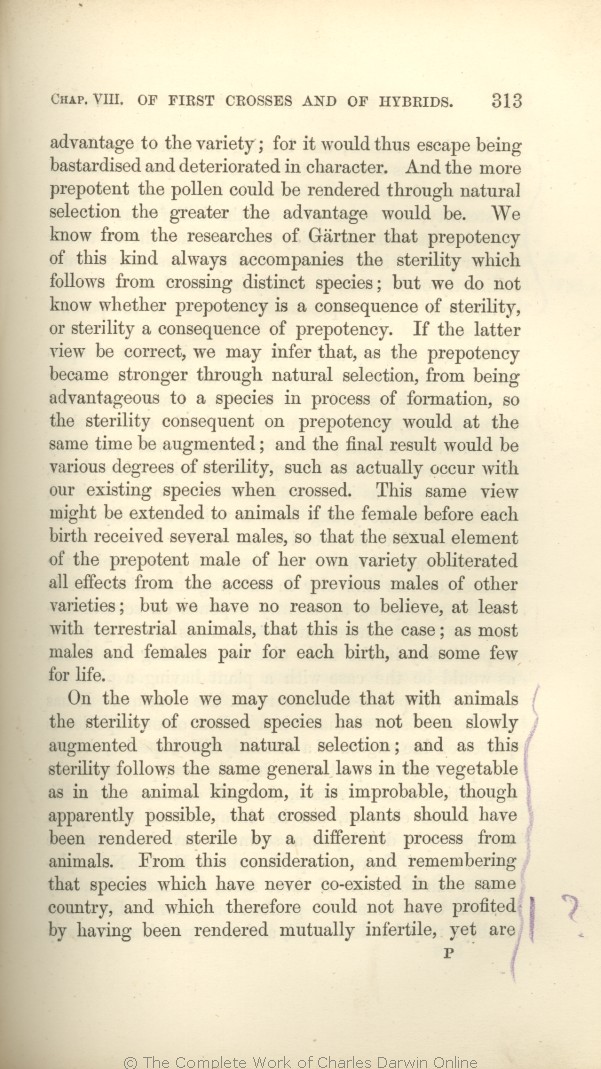character. And the more prepotent the
pollen | pollen 1866 |
| varietys own pollen 1869 |
| selection 1866 | | selection, 1869 |
| prepotency of this kind always accompanies the sterility which follows from crossing distinct 1866 |
| with species which are mutually sterile, the pollen of each is always prepotent on its own stigma over that of the other 1869 |
| species; 1866 | | species: 1869 |
| prepotency 1866 | | this prepotency 1869 |
| sterility, or 1866 |
| the mutual sterility, or the 1869 |
| prepotency. 1866 | | the prepotency. 1869 |
| we may infer that, 1866 |
| OMIT 1869 |
| actually 1866 | actually 1869 |
| species 1866 | | species. 1869 |
| crossed. 1866 | crossed. 1869 |
| animals 1866 | | animals, 1869 |
| varieties; 1866 | | varieties, 1869 |
|
|
On the whole we may conclude that with animals the sterility of crossed species has not been slowly
augmented | augmented 1866 | | augmented, 1869 |
| should 1866 |
| crossed species should 1869 |
| process 1866 | | process. 1869 |
| animals. 1866 | animals. 1869 |
| profited by 1866 |
| received any advantage from 1869 |
|









